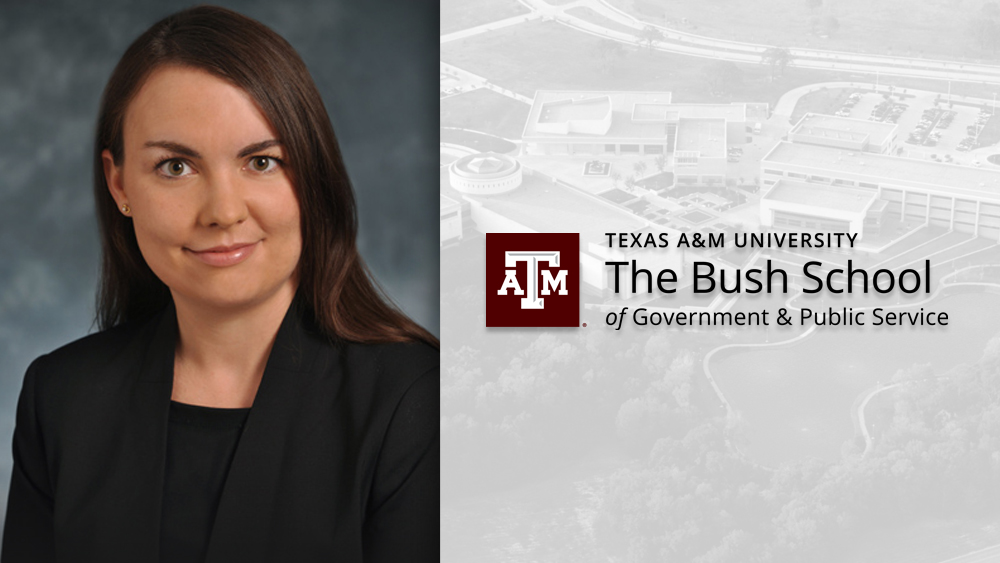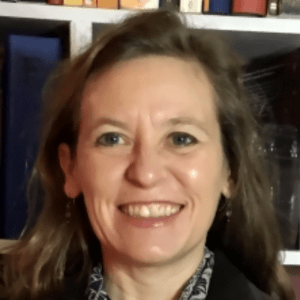
Researchers found that many former prisoners, despite being enrolled in Medicaid, stop taking medications for chronic illness shortly after their release
As they studied two years of prison-inmate data, Laura Dague and a team of fellow health researchers noticed that one particular scenario kept cropping up. That scenario involved the days when an inmate is released and returns to their community. A significant number were released with chronic health issues and promptly signed up for government-subsidized healthcare – only to stop taking their medications.
Why would they stop taking free (or nearly free) medication? And do former prisoners have proper access to care upon returning to their communities? These questions are raised by a new study co-authored by Dague, a Ph.D. and professor with The Bush School of Government and Public Service.
“People taking their medications is important, for themselves and for their communities,” Dague said.
The study was published in “JAMA Network Open,” one of the top medical journals. Dague and her colleagues identified several trends. The most striking is the tendency of former inmates to forsake medication for a chronic condition even with costs covered by Medicaid, the federal-state insurance program for low-income people. The researchers found this trend particularly striking because other studies have shown that Medicaid increases access to healthcare for people who were previously incarcerated. The new study suggests insurance alone may not be enough.
Dague and her colleagues do not suggest policy changes to address their findings. She did say, however, that the results suggest new Medicaid policies to guide former inmates as they rejoin their communities, including policies already encouraged under the federal Support Act, “could be really impactful.”
TWO SOURCES COMBINED FOR A BIGGER PICTURE
Dague and her colleagues focused their study on Wisconsin. They chose the state in part because it does an unusually thorough job of tracking inmate health data and makes that data available to researchers in partnership with the University of Wisconsin’s Institute for Research on Poverty. (Dague also maintains an affiliation with the institute, where she is a colleague of her co-lead author, Marguerite Burns, Ph.D.) Dague, Burns and their colleagues combined Wisconsin Department of Corrections information with Medicaid data, allowing them to track the inmates’ medical history from prison back into their communities.
The research team tracked all adults released from any of the state’s correctional facilities from April 2015 to June 2017. That was 12,960 people, a population 90% male but racially diverse, with an age range from teenagers to senior citizens.

The researchers took particular interest in the 4,302 people who had been taking a medication prescribed for chronic illness within three months of their release and enrolled in Medicaid immediately after release. People who needed to keep taking medication and theoretically had easy access to it, in other words.
Only half of them appear to have kept taking their meds.
The researchers reached this conclusion through Medicaid data showing that only 51.7% filled their prescriptions, even though they all left prison with a prescription in hand.
The researchers also tracked how many former prisoners visited a doctor within six months of release. Access to a healthcare provider and/or willingness to visit one was a key predictor of former inmates’ health. Those who saw a doctor were far more likely – 40 percentage points more likely – to fill their prescriptions. And, presumably, keep taking medications that help them stay healthy.
“These are people with heart conditions, diabetes, anxiety, severe mental illness,” Dague said. She and her fellow researchers identified 25 total medication classes for chronic conditions, and those taking them “don’t just stop needing medication because they left prison.”
The study does not address why they stopped taking their medication. Nor does it presume that the picture in Wisconsin precisely mirrors that elsewhere in the country. But the results do suggest that similar issues could exist elsewhere and should be addressed, Dague said.
Recently incarcerated people tend to have little income, if any, as they rarely have a job upon release. So when a former inmate cannot afford their care and suffers a catastrophic health problem, such as an emergency room visit, the cost is often socialized: spread among people who use the healthcare system or the taxpaying public. Many studies have shown that simple preventive steps – such as taking prescribed medications – can reduce such systemwide costs.
“We know that inmate health, and their health after their discharge, is generally worse than it is among demographically similar people” who have not been imprisoned, Dague said. “This has consequences for the individuals themselves, obviously, but also for their communities: more emergency responses, ambulance rides, emergency-room visits and other costs.”
